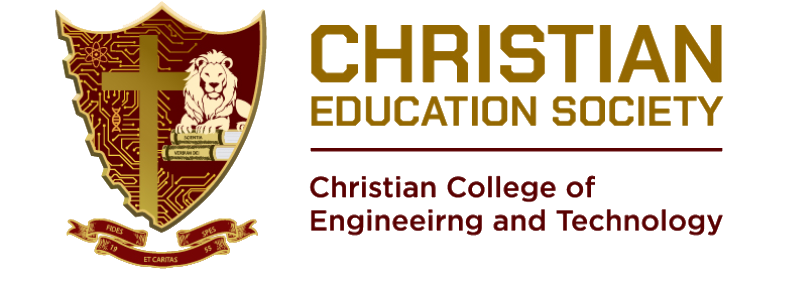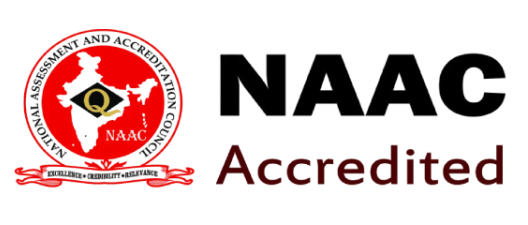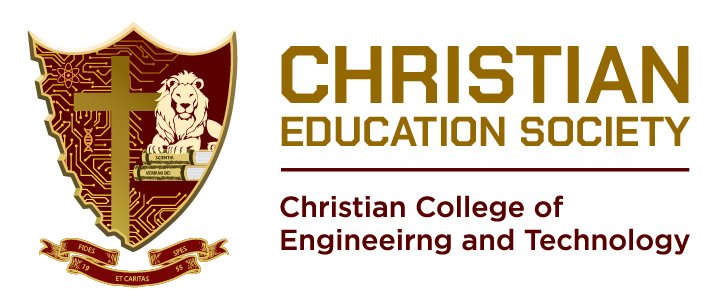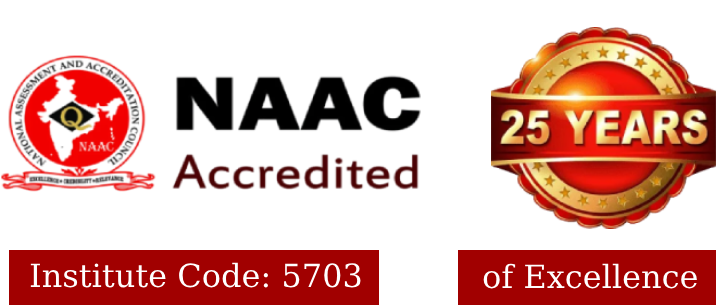M.E. Construction Engineering & Management
Introduction
The P.G programme (M.E – Manufacturing Engineering) was started in the academic year 2014 – 2015 with an in take of 24 students. The curriculum of Manufacturing Engineering, framed by Anna University. The department has highly qualified, experienced and committed faculty to mentor the students throughout their program and grooming them for the greater responsibilities that will be in their shoulder in the years to come. The Mechanical Engineering department frequently conducts seminars, Technical Symposiums, National level and International level Conferences in the field of Mechanical Engineering by inviting experts from the field academics and industry for enriching the knowledge of students.
Vision
To become a centre of excellence in Mechanical engineering, producing innovative and creative Mechanical engineers to meet the challenges the new environment poses.
Mission
- Imparting quality education in Mechanical Engineering to meet the global challenges.
- Enlightening the students as to their professional and ethical responsibilities and training them to build leadership and entrepreneur qualities for a successful career.
- Creating ample opportunities, also guiding students accordingly to acquire jobs.
PROGRAMME EDUCATIONAL OBJECTIVES (PEOs):
Graduates of the programme M E Construction Engineering & Management will
PEO1 Excel in research or will succeed in Construction Engineering and Management profession in the government, public and private sector organizations.
PEO2 Have a sound knowledge in statistics, project management and construction engineering
fundamentals required for solving real time construction Engineering and Management problems using modern equipment and software tools.
PEO3 Become entrepreneurs and develop processes and construction technologies through innovation, by integrating their knowledge in multidisciplinary management to meet the needs of society and formulate solutions that are technically sound, economically feasible, and socially acceptable.
PEO4 Have professional and ethical attitude, effective communication skills, teamwork skills, leadership quality, multidisciplinary approach and an ability to relate Construction
Engineering and Management issues in broader social context.
PEO5 Have competence of excellence, leadership, written ethical codes and guidelines, and the life-long learning needed for a successful professional career.
PROGRAM SPECIFIC OUTCOMES (PSOs):
Graduates of the program M.E. Construction Engineering and Management will be able to
PSO1 | Knowledge of Construction Engineering and Management discipline | In-depth knowledge in the construction management, engineering and technologies necessary to formulate, plan, schedule and execute construction projects. |
PSO2 | Critical analysis of Construction management problems and innovation | Critically analyze and solve construction engineering and management problems by applying the modern tools and concepts of Construction Engineering & Management and make innovative advances in theoretical and practical. |
PSO3 | Conceptualization and evaluation of engineering solutions to Construction Issues | Conceptualize the problems in construction industry and develop appropriate solutions which are technically feasible and economically viable with due consideration of sustainability. |
PROGRAMME OUTCOMES (POs):
POs describe what students are expected to know or be able to do by the time of post-graduation from the program. The Program Outcomes of M.E Construction Engineering and Management are as follows:
The students will able to
PO1: An ability to independently carry out research/investigation and development work to solve practical problems.
PO2: An ability to write and present a substantial technical report/document.
PO3: Students should be able to demonstrate a degree of mastery over the area as per the specialization of the program. The mastery should be at a level higher than the requirements in the appropriate bachelor program.
Pos | Courses | |
PO 1 | An ability to independently carry out research/investigation and development work to solve practical problems. | Modern Construction Materials, Advanced Construction Techniques, Contract Laws and Regulations, Digital Design and Construction, Quantitative Techniques in Management, Computer Applications in Construction Engineering and Planning, Resources Management in Construction, Sustainable Construction, Statistical Methods for Engineers,Project Formulation and Appraisal, Research Methodology and IPR Seminar/ Industrial Training & Thesis. |
PO 2 | An ability to write and present a substantial technical report/document. | Construction Management Studio Laboratory,Statistical Analysis For Construction Engineers,Advanced Construction Engineering and Experimental Techniques Laboratory,Industrial Training & Thesis |
PO 3 | Students should be able to demonstrate a degree of mastery over the area as per the specialization of the program. The mastery should be at a level higher than the requirements in the appropriate bachelor program. | Design of Energy Efficient Buildings, Project Safety Management, Environmental Impact Assessment For Construction Engineers, Shoring, Scaffolding and Formwork, Lean Construction Concepts, Tools & Practices, Construction Planning, Scheduling and Control, Quality control and assurance in construction, Supply chain management and Logistics in construction, Digital Design and Construction,Maintenance, Repair and Rehabilitation Of Structures. |
Manufacturing plays a stellar role in the growth of a nation’s economy. All economic activities are reliant on the efficiency and productivity of manufacturing businesses. Over the years, manufacturing has been instrumental in driving technological advancements and innovations. The M.E. Manufacturing Engineering programme was started in 2014, envisioning the requirement for competent engineers to meet demands in various facets of manufacturing. The programme offers a well- balanced curriculum based on a choice-based credit system with several courses both at the theoretical and practical levels recommended by Anna University. The courses of study include core courses, laboratory courses, audit courses, project work, industry visit and technical seminar, online courses, self-study courses, one-credit courses, and industrial training and internship. Holistically, the programme aims at developing essential analytical capabilities, technical proficiency, and research skills among the students to face emerging challenges thus contributing to the progression of the manufacturing sector.
TOTAL NUMBER OF SEATS: 24 SEATS
| MA4159 STATISTICAL METHODS FOR ENGINEERS – [C101] | |
| C101.1 | Consistency, efficiency and unbiasedness of estimators, method of maximum likelihood estimation and Central Limit Theorem. |
| C101.2 | Use statistical tests in testing hypotheses on data. |
| C101.3 | Concept of linear regression, correlation, and its applications. |
| C101.4 | List the guidelines for designing experiments and recognize the key historical figures in Design of Experiments. |
| C101.5 | Perform exploratory analysis of multivariate data, such as multivariate normal density, calculating descriptive statistics, testing for multivariate normality. |
| CN4101 MODERN CONSTRUCTION MATERIALS – [C102] | |
| C102.1 | Explain the various types of special concretes |
| C102.2 | Select the different processing of steel and applications of coating |
| C102.3 | Explain the manufacturing process and applications of polymer composites |
| C102.4 | Identify the different flooring materials and application of façade materials |
| C102.5 | Apply the knowledge of smart and intelligent materials in construction field |
| CN4102 PROJECT FORMULATION AND APPRAISAL – [C103] | |
| C103.1 | Perform Formulations Of Projects |
| C103.2 | Analyze Project Costing |
| C103.3 | Evaluate Project Appraisal |
| C103.4 | Apply Project Financing |
| C103.5 | Perform Private Sector Participation & Implementation |
| CN4103 CONSTRUCTION EQUIPMENT AND MANAGEMENT – [C104] | |
| C104.1 | Develop knowledge on the planning of equipment and selection of equipment |
| C104.2 | Explain the knowledge on fundamentals of earth work operations, earth moving operations and types of earth work equipment |
| C104.3 | Develop the knowledge on special construction equipments |
| C104.4 | Apply the knowledge on asphalt and concrete plants |
| C104.5 | Apply the knowledge and select the proper materials handling equipment |
| CN4071 ADVANCED CONCRETE TECHNOLOGY – [C105] | |
| C105.1 | Develop knowledge on various materials needed for concrete manufacture |
| C105.2 | Apply the rules to do mix designs for concrete by various methods |
| C105.3 | Develop the methods of manufacturing of concrete. |
| C105.4 | Explain about various special concrete |
| C105.5 | Explain various tests on fresh and hardened concrete |
| ST4161 ADVANCED CONSTRUCTION ENGINEERING AND EXPERIMENTAL TECHNIQUES LABORATORY – [C106] | |
| C106.1 | Do the mix proportion using IS and ACI codal provisions. |
| C106.2 | Analyse the flow characteristics of SCC |
| C106.3 | Analyse the effect of mineral and Chemical Admixtures |
| C106.4 | Test the concrete in a non-destructive manner using a rebound hammer. |
| C106.5 | Know the permeability characteristics of concrete. |
| CN4111 TECHNICAL SEMINAR – [C107] | |
| C107.1 | Identify latest developments in the field of Construction Engineering |
| C107.2 | Identify latest developments in the field of Construction Management |
| C107.3 | Presentation Skills and ability to answer the queries during Interaction |
| C107.4 | Acquire technical writing abilities for seminars, conferences and journal publications |
| C107.5 | Use modern tools to present the technical details |
| CN4201 ADVANCED CONSTRUCTION TECHNIQUES – [C109] | |
| C109.1 | Classify the modern construction techniques used in the sub structure construction. |
| C109.2 | Demonstrate knowledge and understanding of the principles and concepts relevant to super structure construction for buildings |
| C109.3 | Summarize the concepts used in the construction of special structures |
| C109.4 | Distinguish Various strengthening and repair methods for different cases. |
| C109.5 | Identify the suitable demolition technique for demolishing a building. |
| CN4202 CONSTRUCTION PLANNING, SCHEDULING, AND CONTROL – [C110] | |
| C110.1 | Identify and estimate the activity in the construction. |
| C110.2 | Schedule the networking of activities using the critical path method. |
| C110.3 | Evaluate the project budget required for the particular construction project. |
| C110.4 | Recognize the various quality control tool required in the construction industry. |
| C110.5 | Explain the different databases that can be maintained in the construction industry using computers. |
| CN4203 CONTRACT LAWS AND REGULATIONS – [C111] | |
| C111.1 | Design the construction contracts |
| C111.2 | Develop a skill for the tendering process. |
| C111.3 | Explain the duties of the arbitrator. |
| C111.4 | Develop an idea on the various legal requirements to be met in relation to land and construction. |
| C111.5 | Identify and apply the provisions provided in the labour welfare schemes. |
| CN4005 PROJECT SAFETY MANAGEMENT – [C112] | |
| C112.1 | Develop knowledge on accidents and their causes. |
| C112.2 | Develop knowledge about safety programs and job-site safety assessments. |
| C112.3 | Apply the knowledge of contractual obligations. |
| C112.4 | Explain about designing for safety and safety procedures. |
| C112.5 | Develop the knowledge of owners’ and designers’ responsibilities. |
| CN4010 SYSTEM INTEGRATION IN CONSTRUCTION – [C113] | |
| C113.1 | Integrate the various construction techniques and incorporate into the building process |
| C113.2 | Appreciate the requirements and elements of HVAC, mechanical, electrical, hydraulic and transportation services in buildings |
| C113.3 | Design and integrate services into high-rise buildings |
| C113.4 | Interpret the intricacies of physical installation of services and their critical sequence in the construction process. |
| C113.5 | Adopt an approach relating systems to aim for a high performance building in various categories of major use |
| CN4211 CONSTRUCTION MANAGEMENT STUDIO LABORATORY – [C114] | |
| C114.1 | Prepare the proposal for a construction project |
| C114.2 | Store and retrieve information about the equipments. |
| C114.3 | Track the activities and schedule a construction project using PRIMAVERA |
| C114.4 | Track and schedule a construction project using MS Project. |
| C114.5 | Develop a simulation model for analysing the project risk |
| CN4212 STATISTICAL ANALYSIS FOR CONSTRUCTION ENGINEERS LABORATORY – [C115] | |
| C115.1 | Formulate descriptive statistics with charts and graphs using spreadsheet softwares and interpretation of results |
| C115.2 | Analyse construction management field data using Statistical tools. |
| C115.3 | Solve Linear Programming Problems, transportation and assignment problems by appropriate techniques and evaluate the behaviour under different range of parameters |
| C115.4 | Perform network analysis and decision making in project management |
| C115.5 | Solve Construction management problems using decision making tool. |
| ST4073 MAINTENANCE, REPAIR AND REHABILITATION OF STRUCTURES – [C201] | |
| C201.1 | Explain the importance of maintenance assessment and repair strategies |
| C201.2 | Acquire knowledge of strength and durability properties and their effects due to climate and temperature. |
| C201.3 | Gain knowledge of recent developments in repair |
| C201.4 | Explain the techniques for repair and protection methods |
| C201.5 | Explain the repair, rehabilitation and retrofitting of structures and demolition methods |
| CN4013 QUALITY CONTROL AND ASSURANCE IN CONSTRUCTION – [C202] | |
| C202.1 | Achieve the knowledge of quality management guidelines, and quality circles. |
| C202.2 | Apply the quality standards for preparing Quality system documents. |
| C202.3 | Explain the skill of preparing inspection procedures for quality planning. |
| C202.4 | Select the techniques and tools for Quality Assurance and Control in Construction Industry. |
| C202.5 | Achieve the knowledge of quality improvement techniques |
| CN4312 PROJECT WORK I – [C204] | |
| C204.1 | Apply the knowledge gained from theoretical and practical courses in solving problems. |
| C204.2 | Summarize the importance of literature review. |
| C204.3 | Identify the problem |
| C204.4 | solve the identified problem based on the formulated methodology |
| C204.5 | Interpret and present the findings of the work conducted. |
| CN4411 PROJECT WORK II – [C205] | |
| C205.1 | Discover the potential research areas. |
| C205.2 | Apply the knowledge gained from theoretical and practical courses to be creative, well planned, organized and coordinated. |
| C205.3 | Identify the problem. |
| C205.4 | solve the identified problem based on the formulated methodology |
| C205.5 | Interpret and present the findings of the work conducted |









